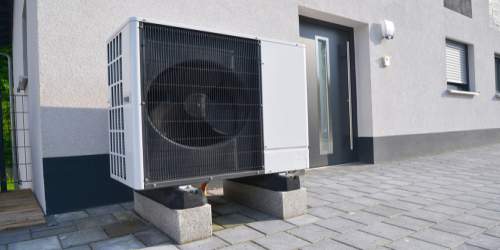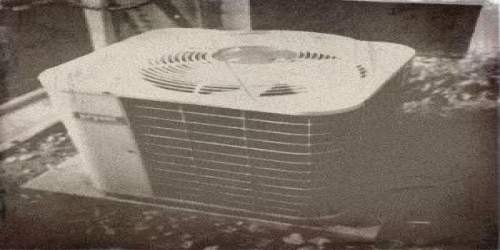Read Time : 3 Minutes
What is Ground Source Heating
Ground source heating is one of the best options available when it comes to heat pumps. They are able to work efficiently throughout the year, no matter the weather, due to the fact that they are buried underground. Heat pumps are quite new in the trending market, with an increasing number of people setting out to purchase and install them. Here is some of the key information you should know about ground source heating.
What is a Ground Source Heat Pump?
The thing that makes a ground source heat pump what it is, is the pipework and how it is laid out. Generally speaking, you will find that the system consists of around 100m of piping – all of which is buried in loops in trenches, or vertically in boreholes. Once the piping has been buried, it is possible to restore the surface of the ground so that it can be returned to use for its original function. This could be a field for growing crops, garden, or even a driveway. You will never even notice a pipe has been installed there.
COMPARE PRICES FROM LOCAL INSTALLERS
Compare prices from local companies fast & free
Enter your postcode to compare quotes from leading professionals. We promise to keep your information Safe & Secure. Privacy Policy
How Does a Ground Source Heat Pump Work?
The way in which this system works is actually very simple. It starts with a liquid, usually antifreeze, being pumped through the piping. As a side note, biodegradable options of this liquid are available. The liquid works to help absorb the warmth that is naturally found in the ground.
Following this, a compressor that is found in the main unit of the heat pump will raise the overall temperature of the fluid before a heat exchanger transfers the heat to a separate body of water. Once this is done, it then circulates around the central heating system and the water, which is now cooled, is pumped back out to the buried piping. After this, the cycle continues to repeat itself in order to keep your home warm.
It should be noted that your ground source heat pump will still continue to generate carbon emissions. This is because the entire system is powered by electricity. So while the emissions produced are lower than conventional heating methods, they are still present. On a more positive note, it is possible to connect the system to a renewable source of energy (such as a wind turbine) so that power can be produced.
Ground Source Heat Pump Systems
There are two main types of ground source heat pump that you can have installed at your property. These are known as the horizontal and vertical systems. Which of these you have installed depends on the amount of space that is available to you, as both are installed underground.
The horizontal system tends to be laid in a shallow trench over a much wider surface area than its vertical counterpart. If you have a large amount of space, then this is a great option to go for. However, if you find yourself a little short on space, then there is no need to worry. The vertical system uses a borehole (or boreholes) to ensure the pipes are suitable buried. These tend to be anywhere from 15m deep to 100m deep. It really depends on what you need for your home.
It is essential that you remember to make sure the system you use is the correct size for your home and personal needs, regardless of the system you will be using.
Choosing an Installer
If you are considering looking into ground source heat pump installation, you should always make sure that you use a Microgeneration Certification Scheme (MCS) registered installer, and also ensure that they are a fully qualified and accredited professional.
The Energy Saving Trust (EST) conducted a trial with ground source heat pumps to discover more about how efficient the pumps are and how people are using them. During the trial, the EST discovered that a large number of heat pumps had actually been installed incorrectly. This meant that they were not performing as efficiently as they should have been.
This is why it is so important that you use an MCS approved product and installer when you go to purchase your ground source heat pump. You must also ensure this is the case if you wish to be eligible for the Renewable Heat Incentive (RHI), which is a government scheme that pays homeowners who have renewable heat technologies installed. It pays a reasonable amount, ranging from £500 to just over £2,000 per year.
It is also essential to remember that there are rules with regards to the ways in which heat pumps qualify for MCS approval. This makes it even more vital that you ensure the heat pump that you are considering is MCS approved. If you are ever in doubt about an installer or product, you can go to the MCS website and see if the product and installer are approved using a simple search function on the website.
When it comes to the length of time it takes to install the ground source heat pump, you shouldn’t expect the process to take more than one or two days for full installation. After this, it will be fully operational. We suggest that you get several quotes from different installers before you make your choice.
Your Heating Controls
When the ground source heat pump is being installed, you should make sure you ask your installer about how you will be able to control the system. Ensuring that you have a good understanding of how everything works are essential for the system to run efficiently. This allows you to get the most out of it.
The installer should always take the time to explain each of the controls to you in detail, making sure that you are comfortable and confident when it comes to operating them yourself unsupervised. They should also provide a manual, especially as EST’s research found that many people struggle with the controls as installers often neglect to fully explain them.
Want to Know More?
Have you found yourself interested in ground source heat pumps? If you want to know more, simply give us a ring using the number at the top of this page and have a chat.
Find a local installer
Welcome to the biggest directory of UK renewable energy companies





 How does a Heat Pump Work
How does a Heat Pump Work








